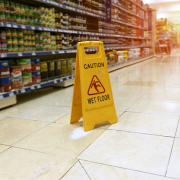Identifying South Carolina laws against violations of nursing home resident rights.
South Carolina – March 31, 2021
Nursing home residents have rights under federal and state law, and attorneys at McDougall Law Firm can support those rights in legal actions necessary for families and individuals who have suffered personal injury, or harm. United States licensed care facilities have a mission to attend to the well-being of approximately 1.3 million Americans living in nursing homes and long-term care facilities, and protect them from neglect and nursing home abuse. When deviations in standards of care occur, complaints can be made against a Nursing Home, or any other Medicare Certified healthcare facility by contacting the Bureau of Certification Complaint Hot Line at 1-800-922-6735.
South Carolina legal guidelines.
The South Carolina Department of Health has guidelines that state run nursing homes must adhere to for the safety and well-being of their residents. The overarching rights included in the Federal Resident Bill of Rights under the Omnibus Budget Reconciliation Act of 1987 are the primary reference for these protections. South Carolina protections also include:
S.C. Code Section 44-81-10.
Each resident, or the resident’s representative must be given by the facility a written and oral explanation of the rights, grievance procedures, and enforcement provisions of South Carolina law at the time of admission to a long-term care facility.
Alzheimer’s Special Care Disclosure Act.
A nursing home, community residential care facility, or day care facility for adults licensed by the Department of Health and Environmental Control which offers to provide or provides an Alzheimer’s special care unit, or program must include in its policies and procedures and disclose to the responsible party seeking a placement within the Alzheimer’s special care unit or program, the form of care or treatment provided that distinguishes it as being especially applicable to or suitable for persons with Alzheimer’s disease. The information that distinguishes the form of care or treatment shall include criteria for admission, transfer, and discharge; care planning; staffing patterns; staff training; physical environment; resident and participant activities; family role in care; and unique costs to the resident or participant associated with specialized service delivery.
The Omnibus Adult Protection Act as S.C. Code Section 43-35-5, et seq.
In accordance with The Nursing Home Reform Act under Title IV: of the Omnibus Budget Reconciliation Act of 1987, residents are entitled to receive:
- Medically-related social services,
- Proper health care and dental care,
- Accurate dispensing, receipt, and administration of medicines,
- Dietary services that meet daily nutritional needs,
- Services for mentally ill and special needs residents,
- Personal, material, and financial privacy when requested,
- Treatment that does not violate a resident’s personal dignity.
Seek legal counsel.
Residents who suffer harm directly related to a negative nursing home encounter that exacerbated an existing health condition, or placed them in danger, should speak to a skilled nursing home abuse lawyer who can identify the appropriate legal cause of action supporting a duty of care owed to residents. Contact an experienced attorney at the McDougall Law Firm if you, or a loved one suffered injury, or an untimely fatal outcome caused by unsafe nursing home practices, inadequate precautions, and neglect.
McDougall Law Firm, LLC
115 Lady’s Island Commons
Beaufort, SC 29907
Phone: 843.379.7000
Sources.
https://www.scstatehouse.gov/code/t44c081.php
https://scdhec.gov/sites/default/files/docs/Health/docs/hlalzheimer.pdf
https://www.scdhec.gov/sites/default/files/Library/Regulations/R.61-17.pdfd
https://www.scstatehouse.gov/code/t44c070.php
https://www.scstatehouse.gov/code/t43c035.php
https://www.scdhhs.gov/internet/pdf/RegionalTrainingOAPAHandout2010.pdf



